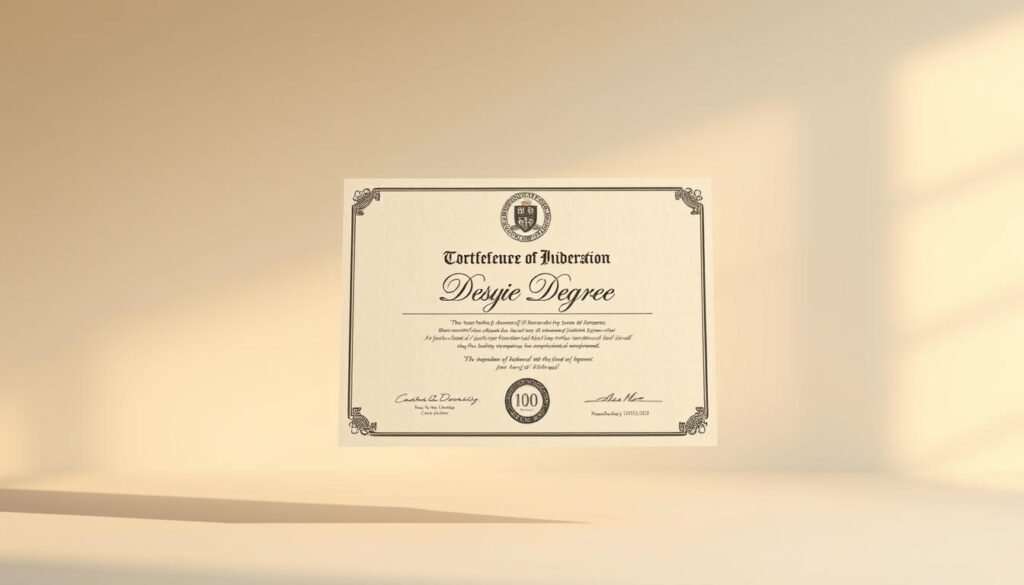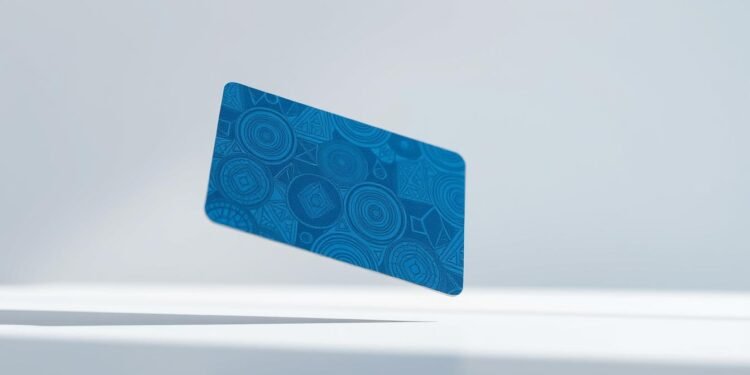Have you ever wondered how international students can turn their academic success into a thriving career abroad? With over 469,485 international students in 2023, this country has become a top destination for education and professional growth.
For non-EU graduates, the transition from a student visa to professional employment is seamless. After completing their studies, they can extend their residence permit for up to 18 months. This period allows them to find suitable opportunities to work in Germany and build their careers.
The blue card is a primary pathway for skilled graduates seeking long-term employment in Germany. It offers benefits like eligibility for permanent residence and family reunification. For US graduates, specific salary thresholds and degree recognition make this option even more attractive.
Key Takeaways
- Over 469,485 international students choose this country for education and career opportunities.
- Non-EU graduates can extend their residence permit for 18 months post-graduation.
- The blue card is a key pathway for skilled professionals.
- Benefits include permanent residence eligibility and family reunification.
- US graduates should note specific salary and degree requirements.
Introduction to the Germany Blue Card
The EU Blue Card is a game-changer for skilled professionals seeking opportunities abroad. This residence permit is designed for highly qualified non-EU/EEA nationals who want to work and build a career in Europe. It combines the benefits of a visa and a long-term employment solution.
To qualify, applicants must have a recognized university degree and a valid job offer. The role must meet specific salary thresholds, which are set at €48,300 for 2025. For shortage occupations, the threshold is slightly lower at €43,759.80.
Unlike regular work permits, the Blue Card offers extended validity—up to four years. It also provides a clear pathway to permanent residency. This makes it an attractive option for professionals aiming for long-term stability.
Renewal is straightforward if the holder continues to meet the requirements. This flexibility ensures that skilled workers can focus on their careers without frequent bureaucratic hurdles.
Eligibility for the Germany Blue Card After Graduation
Securing a work permit requires fulfilling key academic, contractual, and financial conditions. For non-EU graduates, understanding these requirements is essential to transition smoothly into professional roles.
Academic Qualifications
Applicants must hold a recognized university degree. Foreign degrees need to show H+ status in the Anabin database or a ZAB Statement of Comparability. This ensures the qualification meets local standards.

Job Offer Requirements
A valid job offer is mandatory. The contract must be for at least six months and align with the applicant’s field of study. The federal employment agency may approve exceptions for roles in high-demand sectors like STEM and healthcare.
Salary Threshold
The salary threshold for 2025 is set at €48,300 for standard roles. For bottleneck professions, such as engineering and IT, the threshold is slightly lower at €43,759.80. Meeting this annual salary requirement is crucial for eligibility.
Key Requirements for the Germany Blue Card
Understanding the key requirements is crucial for a smooth application process. Applicants must provide specific documents and meet certain conditions to qualify. These include proof of employment, health insurance, and accommodation details.
Proof of Employment
A signed employment contract is mandatory. The employer must provide a declaration confirming the job offer and its alignment with the applicant’s qualifications. This ensures the role meets the necessary criteria for the application.
Foreign-issued documents may require notarization to be valid. This step ensures all paperwork is legally recognized and avoids delays in processing.
Health Insurance and Accommodation
Applicants must have valid health insurance before submitting their application. Statutory health insurance is preferred, but private options are acceptable if they meet local standards.
Proof of accommodation is also required. This can be shown through a rental contract or an Anmeldung (housing registration). These documents confirm the applicant’s residence and stability in the country.
Common errors, such as incomplete paperwork or missing signatures, can cause delays. Double-checking all documents before submission is essential for a successful application.
How to Apply for the Germany Blue Card
Navigating the application process for a skilled professional visa can seem daunting, but with the right guidance, it’s straightforward. Whether you choose to apply online or in person, understanding the steps and preparing the necessary documents is key to a smooth experience.

Online Application Process
The online portal requires two-factor authentication for security. Start by creating an account and uploading your documents in PDF, JPG, or PNG formats. Ensure each file is under 10MB to avoid upload issues.
Once your application is submitted, you’ll receive a confirmation email. The system will guide you through the payment of the application fees, which include a €75 visa fee and a €100 residence permit fee.
In-Person Application Process
If you prefer an in-person application, schedule an appointment at your nearest embassy or consulate. Bring your passport, printed application form, and all required documents. Biometric enrollment, including fingerprints and a photo, is mandatory during this visit.
Plan ahead, as appointment slots can fill up quickly. Arrive early to ensure you have enough time to complete the process without stress.
Required Documents
Prepare a checklist to avoid missing any critical items. Essential documents include your passport, Anabin printouts, and proof of employment. Double-check that all forms are signed and notarized if necessary.
After approval, you’ll have a 90-day window to enter Germany. Make sure your travel plans align with this timeframe to avoid complications.
Benefits of the Germany Blue Card
The advantages of this skilled professional visa extend beyond just work opportunities. It offers a clear path to long-term stability and access to essential benefits. These include eligibility for permanent residence, comprehensive social security, and the ability to reunite with family members.
Pathway to Permanent Residence
One of the most significant benefits is the streamlined process for obtaining permanent residence. With a B1 level in the local language, eligibility is granted after 27 months. For those with a B2 level, this timeline reduces to just 21 months.
Compared to other permits, this visa offers a faster and more predictable route to long-term residency. This makes it an attractive option for professionals planning to settle in Europe.
Social Security and Family Reunification
Holders gain full access to the country’s social security system. This includes pension contributions, unemployment benefits, and healthcare access on par with citizens. Such benefits provide financial stability and peace of mind.
Family members also benefit significantly. Spouses can work immediately without restrictions, and processing times for family visas are efficient. This ensures that families can stay together and thrive in their new environment.
Additionally, the visa grants travel privileges across the Schengen Area. This allows holders and their families to explore and connect with other European countries seamlessly.
Tips for a Successful Germany Blue Card Application
Preparing for a skilled professional visa application requires careful planning and attention to detail. One of the most critical factors is German language proficiency. While A1 is the minimum requirement, advancing your skills can speed up processing by 72%. This is especially helpful when submitting documents in the local language.
Starting your application during your final university semester is highly recommended. This gives you ample time to gather all necessary documents and avoid last-minute stress. Registering with the Federal Employment Agency portals can also be a game-changer. BA-approved jobs often reduce approval time by 3-4 weeks.
Professional credential translation services are another key step. Ensure your academic and professional qualifications are accurately translated and recognized. This avoids delays and ensures your application meets all requirements.
Lastly, avoid last-minute document collection. Double-check all paperwork, including proof of employment and health insurance, well in advance. This ensures a smooth and efficient application process.
Conclusion
For skilled professionals, securing a long-term career abroad starts with understanding the right visa options. The blue card stands out as a strategic choice, offering a streamlined path to a residence permit and eventual permanent residence. With salary thresholds tailored to high-demand sectors like tech and engineering, it’s a practical solution for those aiming to work germany.
Early preparation is key. Ensure your academic documents are recognized and translated to avoid delays. US applicants should double-check their credentials and job offers to meet all requirements. The growing demand in specialized fields makes this visa even more appealing for professionals seeking stability and growth.
By focusing on eligibility criteria and preparing in advance, you can navigate the application process smoothly and unlock long-term opportunities in your field.
FAQ
Who qualifies for the Blue Card after graduation?
Graduates with a recognized university degree and a job offer in a skilled occupation that meets the salary threshold qualify.
What is the minimum salary requirement for the Blue Card?
The annual salary must be at least €43,800 for most jobs or €39,682 for shortage occupations.
Can I apply for the Blue Card without a job offer?
No, a valid employment contract from a German employer is mandatory for the application.
What documents are needed to apply for the Blue Card?
You’ll need your passport, university degree, employment contract, proof of health insurance, and accommodation details.
How long does it take to process the Blue Card application?
Processing typically takes 4-6 weeks, but it may vary depending on the local immigration office.
Can my family join me on a Blue Card?
Yes, your spouse and children can apply for family reunification visas to join you.
Is German language proficiency required for the Blue Card?
Basic language skills are not mandatory initially but can help with integration and permanent residence later.
How does the Blue Card lead to permanent residence?
After 33 months of employment (or 21 months with B1 German skills), you can apply for permanent residency.
What are the benefits of holding a Blue Card?
Benefits include access to social security, family reunification, and a streamlined path to permanent residence.
Can I switch jobs while holding a Blue Card?
Yes, but you must notify the immigration office and ensure the new job meets the Blue Card requirements.





